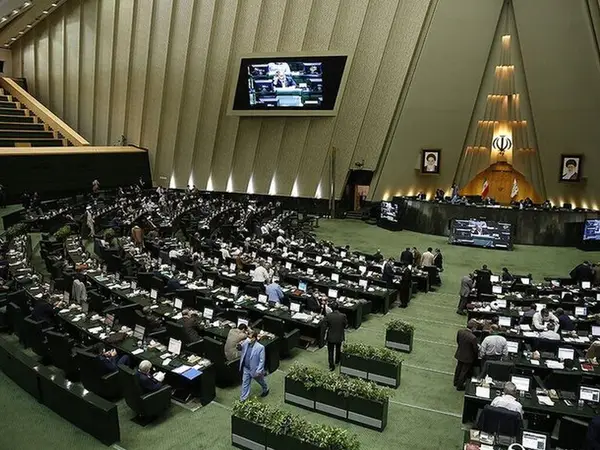Differences are emerging in Iran’s parliament over how to justify the bloody crackdown on protesters, particularly the recent bloodshed in Kurdish regions, with hardliners hindering investigation.
According to an article in reformist daily Etemad Online on Tuesday, Tabriz representative Ahmad AlirezaBeigi – himself a conservative politician and a retired police officer – said that despite demands to hold special sessions in parliamentary committees to discuss the protests, some representatives create obstacles to prevent any probe into the high number of people killed.
He said constituents have been demanding special meetings either at the Internal Affairs or the National Security committees. He also dais the interior ministry should be held accountable.
He claimed that the attempts have been stifled mainly by the members of the Front of Islamic Revolution Stability (Paydari), a so-called “principlist” political party sometimes described as the "extreme end of the fundamentalist camp" and "Iran’s most right-wing party."
Alireza Beigi added that how authorities react to the current developments is very important in shaping the unfolding events. He mentioned the bloody crackdown on protesters in Sistan-Baluchestan province as an example, saying that people sought accountability over the rape of a young girl in the city of Chabahar by a police officer and shooting nearly 100 people in the provincial capital Zahedan on September 30, that became known as the Bloody Friday of Zahedan. But when a representative from the province talked about the incidents in parliament, his microphone was turned off as hardliners reacted harshly. As a result, the protests escalated, and the Sunni leader of the Baluch people Molavi Abdolhamid criticized Supreme Leader Ali Khamenei’s rule. Then Khamenei’s sent an envoy to the region and suddenly all those who were killed as “rioters” were labeled “martyrs.”
Reports about the alleged rape of a 15-year-old Baluch girl in June by a police commander in Chabahar, who has remained immune to prosecution, sparked protests in Zahedan on September 30.
In the past few days, the Islamic Republic has intensified its repression on Kurdish-majority cities and towns in western provinces following reports that parts of some small towns had fallen into the people’s hands. The majority of Iran's 10 million Kurds live in the western parts of the country. It has also launched repeated attacks against Iranian Kurds sheltering in Iraqi Kurdistan. The Islamic Republic’s military crackdown on Kurdish regions can be construed as a new episode of escalating the unrest beyond Iran’s borders.
To check the veracity of the claims by Alirezabeigi, the newspaper contacted member of the Internal Affairs committee Mohammad Hossein Asafari -- a former senior commander of the Revolutionary Guard, IRGC, who said the issue is not within the jurisdiction of the parliament's National Security committee. He added that the recent incidents in Kurdish regions are not the result of the demands by the people, and those who are on streets to protests “are the terrorists and must be dealt with decisively."
There are increasing indications that Iran's so-called neo-cons are attacking the ultraconservative Paydari Party to end its dominance in the administration of President Ebrahim Raisi. The neo-cons led by Majles (parliament) Speaker Mohammad Bagher Ghalibaf have been trying to convince others in Iran’s political circles that they are prepared to establish "new governance," and bring about "reforms in the system" based on "new plans." These are the buzzwords heralding change from within the system at a time when young men and women in the streets do not seem to be listening to anyone representing the regime.
